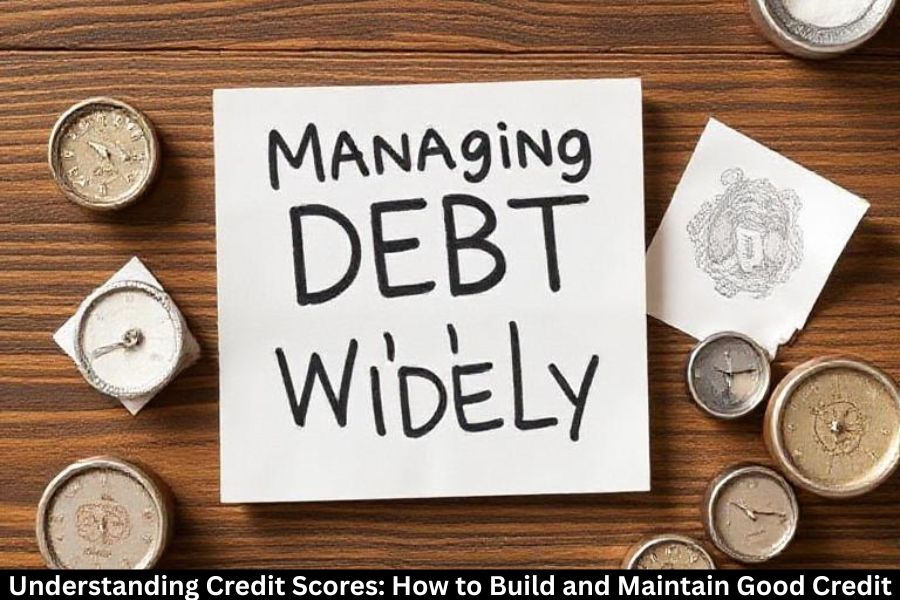Your credit score is like your financial reputation—it tells lenders, landlords, and even employers how trustworthy you are with money. Yet, many people don’t fully understand how it works or how to improve it. The truth is, building and maintaining good credit isn’t complicated; it just takes time, knowledge, and consistent habits.
What Is a Credit Score?
A credit score is a three-digit number, usually between 300 and 850, that reflects your creditworthiness. The higher your score, the more likely lenders are to approve you for loans, credit cards, and favorable interest rates. In short, it’s a snapshot of how responsibly you manage your debt.
The Main Credit Bureaus
There are three major credit bureaus that track and report your credit information:
- Experian
- Equifax
- TransUnion
Each may have slightly different data, so your score might vary depending on the bureau or scoring model (like FICO or VantageScore) being used.
How Credit Scores Are Calculated
Credit scores are based on five key factors:
- Payment History (35%) – Your record of on-time payments is the most important factor.
- Credit Utilization (30%) – This measures how much of your available credit you’re using.
- Length of Credit History (15%) – The longer your accounts have been open, the better.
- New Credit (10%) – Too many recent applications can lower your score temporarily.
- Credit Mix (10%) – Having a mix of credit types (credit cards, loans, etc.) can help.
Credit Score Ranges
- Excellent: 800–850
- Very Good: 740–799
- Good: 670–739
- Fair: 580–669
- Poor: 300–579
A “good” score or higher generally qualifies you for better loan terms and lower interest rates.
Why Your Credit Score Matters
Your credit score affects more than just borrowing money. It impacts:
- Loan approvals: Lenders use it to assess risk.
- Interest rates: Higher scores often mean lower rates.
- Housing: Landlords check credit for rental applications.
- Employment: Some employers review credit reports for positions involving financial responsibility.
A good score gives you financial freedom and confidence when making big decisions.
How to Check Your Credit Score
You can check your credit score for free through many banks, credit card companies, or sites like AnnualCreditReport.com, which offers one free report from each bureau every year. Monitoring your score regularly helps you catch errors or identity theft early.
How to Build Good Credit from Scratch
Starting with no credit history? No problem.
- Get a secured credit card: Deposit-based cards are designed for beginners.
- Become an authorized user: Ask a trusted family member to add you to their card.
- Use credit-builder loans: These small loans help establish positive payment history.
The goal is to show lenders that you can borrow and repay responsibly.
Smart Credit Card Habits
Credit cards can either help or hurt you depending on how you use them.
- Always pay on time—even one late payment can hurt your score.
- Keep balances below 30% of your total limit.
- Avoid opening too many accounts in a short period.
Responsible usage builds trust—and a strong credit score.
Credit Utilization Ratio Explained
Your credit utilization ratio is the percentage of available credit you’re currently using. For example, if you have a $5,000 limit and owe $1,000, your utilization is 20%. Keeping it below 30% is ideal, but under 10% is even better for top scores.
How to Maintain Good Credit
Building good credit is one thing—keeping it is another.
- Check reports regularly for mistakes.
- Dispute any errors immediately with the credit bureaus.
- Keep old accounts open, as they lengthen your credit history.
Consistency is key. Think of your credit score as a long-term relationship—it grows stronger the more responsibly you treat it.
Common Mistakes That Hurt Your Credit
- Missing payments or paying late
- Maxing out credit cards
- Closing old credit lines (which shortens your credit history)
- Applying for too many new accounts at once
Avoid these, and your credit will naturally improve over time.
Rebuilding Damaged Credit
If your credit took a hit, don’t panic—it’s fixable.
Start by paying all bills on time and reducing balances. Consider secured credit cards or credit-builder loans to reestablish a positive record. Most importantly, be patient—credit repair takes months, not days.
Credit Myths vs. Facts
| Myth | Fact |
|---|---|
| Checking your score hurts it | Checking your own score is a soft inquiry—it doesn’t affect it. |
| Closing old cards helps | It can actually lower your score by reducing your credit history. |
| Carrying a balance improves credit | False! Pay off balances in full to avoid interest. |
| You need to be rich to have good credit | You just need consistency, not high income. |
Conclusion
Your credit score is more than just a number—it’s your financial reputation. By understanding how it works and practicing good habits, you can build and maintain strong credit that opens doors to better opportunities. Pay on time, stay organized, and be patient—good credit is earned over time, not overnight.
FAQs
1. How often should I check my credit score?
At least once a month if possible—many credit card apps offer free updates.
2. Does checking my credit score lower it?
No, checking your own score is considered a soft inquiry and has no impact.
3. What’s the fastest way to improve my credit?
Pay bills on time and lower your credit card balances.
4. How long do negative marks stay on my report?
Most stay for up to seven years, but their impact fades over time.
5. Can I have a good credit score without a credit card?
Yes—using other forms of credit, like loans or rent reporting, can help build your history.



